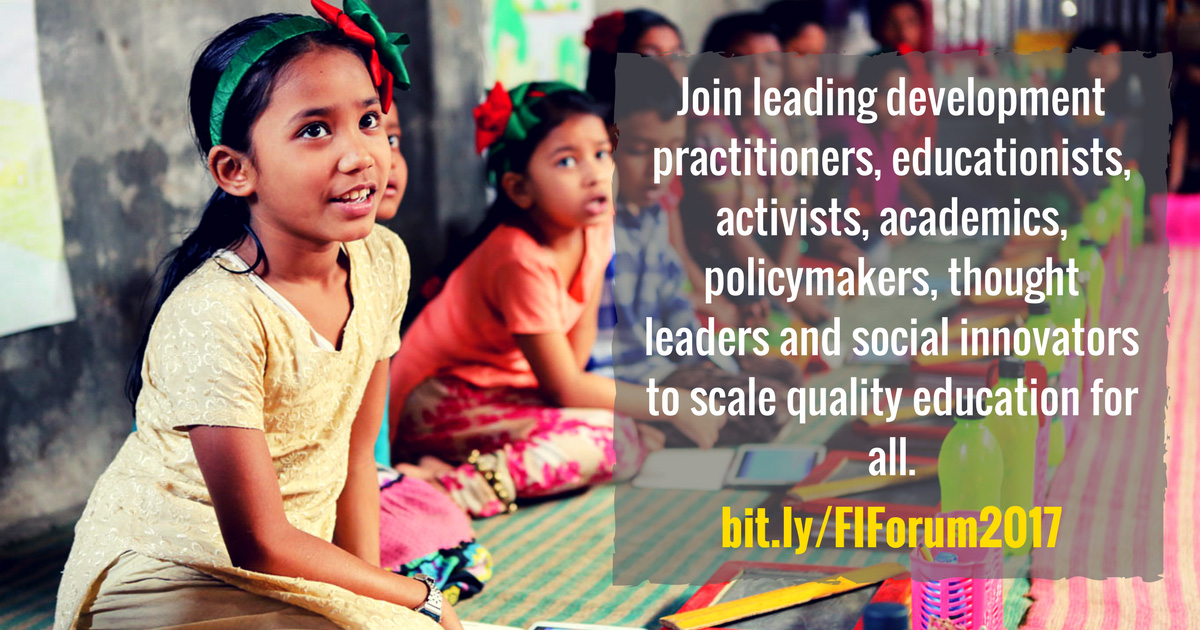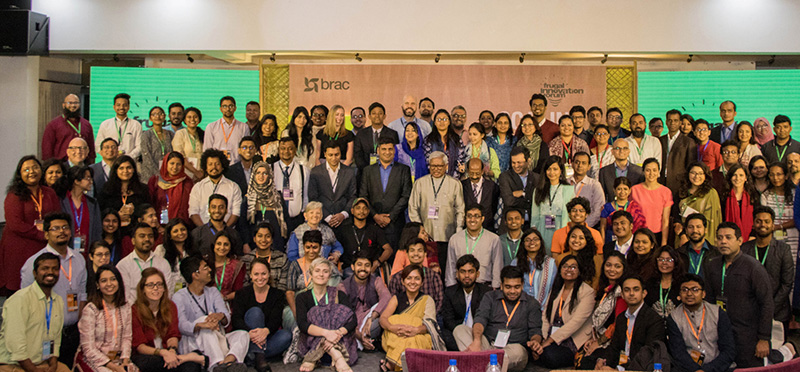Our future has never been so young: 85% of the world’s young population currently reside in the Global South. Young people in this region have been driving social transformations long before ‘changemaker’ became a buzzword. The biggest theme that echoed throughout the forum is that young people can no longer be thought of as passive recipients of development when the biggest social transformations in the region have been led by the youth. Here are top 3 insights on what it takes to enable young people to make a difference.
If you want to see real change, stop leaving out young people from the table.
Young people’s ability and aspirations have always shaped development trajectories of countries around the world – but how many countries have consistently engaged with young people when making policies or passing bills at the parliament? How well have we been able to explore the resources that young people can bring?
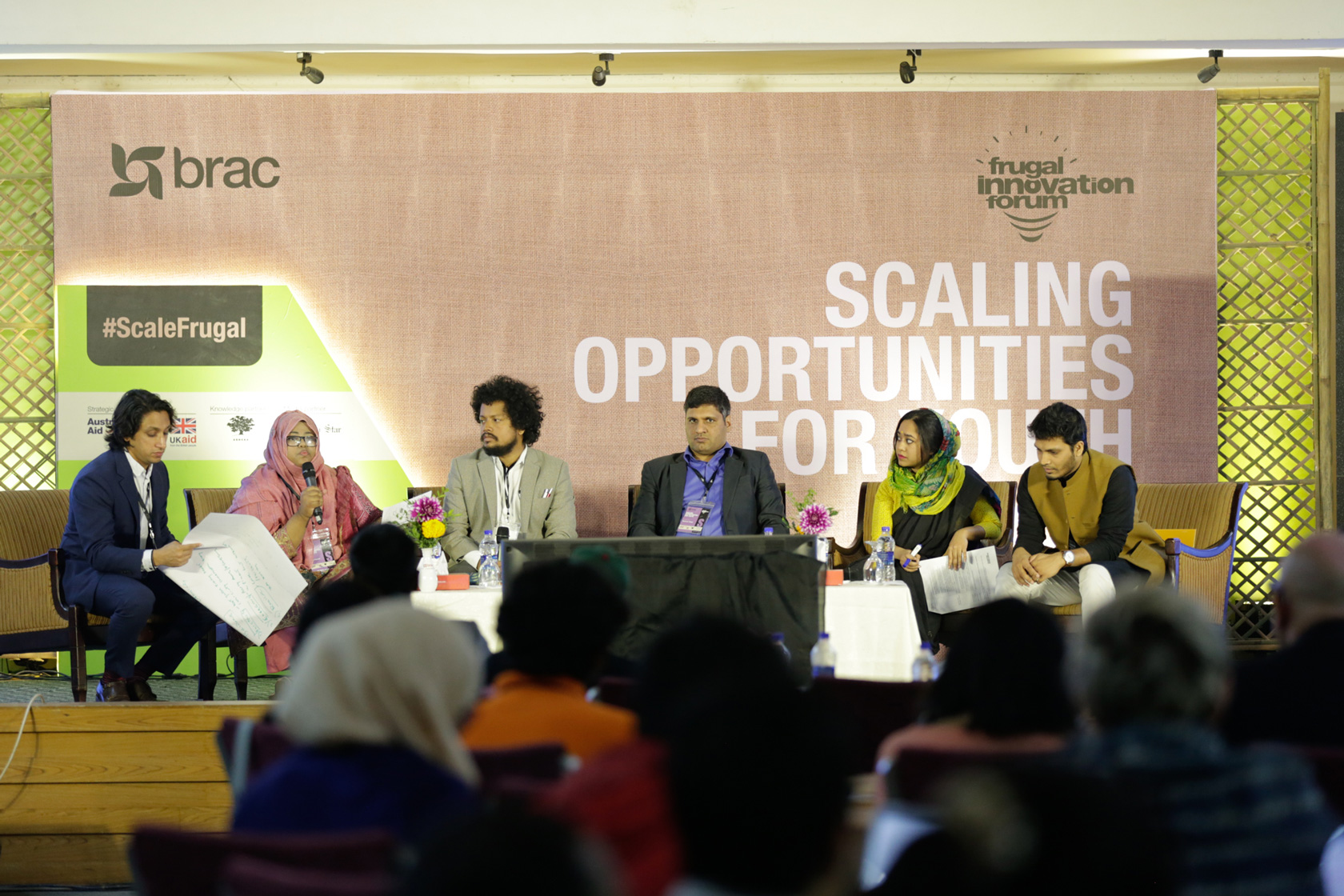
In the face of dwindling interest in political participation, intiatives like Hackergram are bringing solutions to change that. The India-based network of youth spaces, communities and organisations help create sustainable solutions in diverse areas including participative governance. Deepta Arjun, the founder of the network, shares that her biggest challenge involved building trust between generations. It is only when they are able to see common goals that people connected to find solutions.
In Bangladesh, institutes like Centre for Research and Information (CRI) and IID are bringing politics and governance closer to young people through youth-led manifestos, residential training, and public discussions with people in the government.
“We think of youth as a means to an end, rather than an end in itself. Youth themselves can create change; youth themselves can become actors in history.”
-Sir Fazle Hasan Abed
Governments and policymakers must start thinking of young people as partners. For that to happen, we must rethink current systems by exploring new models of growth.
Channel youthful energy into compassionate activism
Yashveer Singh, one of the speakers and director of Ashoka South Asia believes that the biggest influencers for young people are young people themselves. One of the most important findings over his organisation’s 38-year-long journey that has been that all leading changemakers have started young, and success depended largely on how passionately they felt in their areas of activism.
Take Virali Modi, the 25-year-old disability rights activist from India who was sexually harassed several times while using public transport, becoming a target because she believes, of her disability. From starting a simple petition online to finally catching the attention of the government, she is now on her way to making railways across India more inclusive. Her powerful speech revealed the utter lack of data on the existing number of people with disabilities – all a result of the simple fact that people with disabilities barely have a presence in our social fabric.
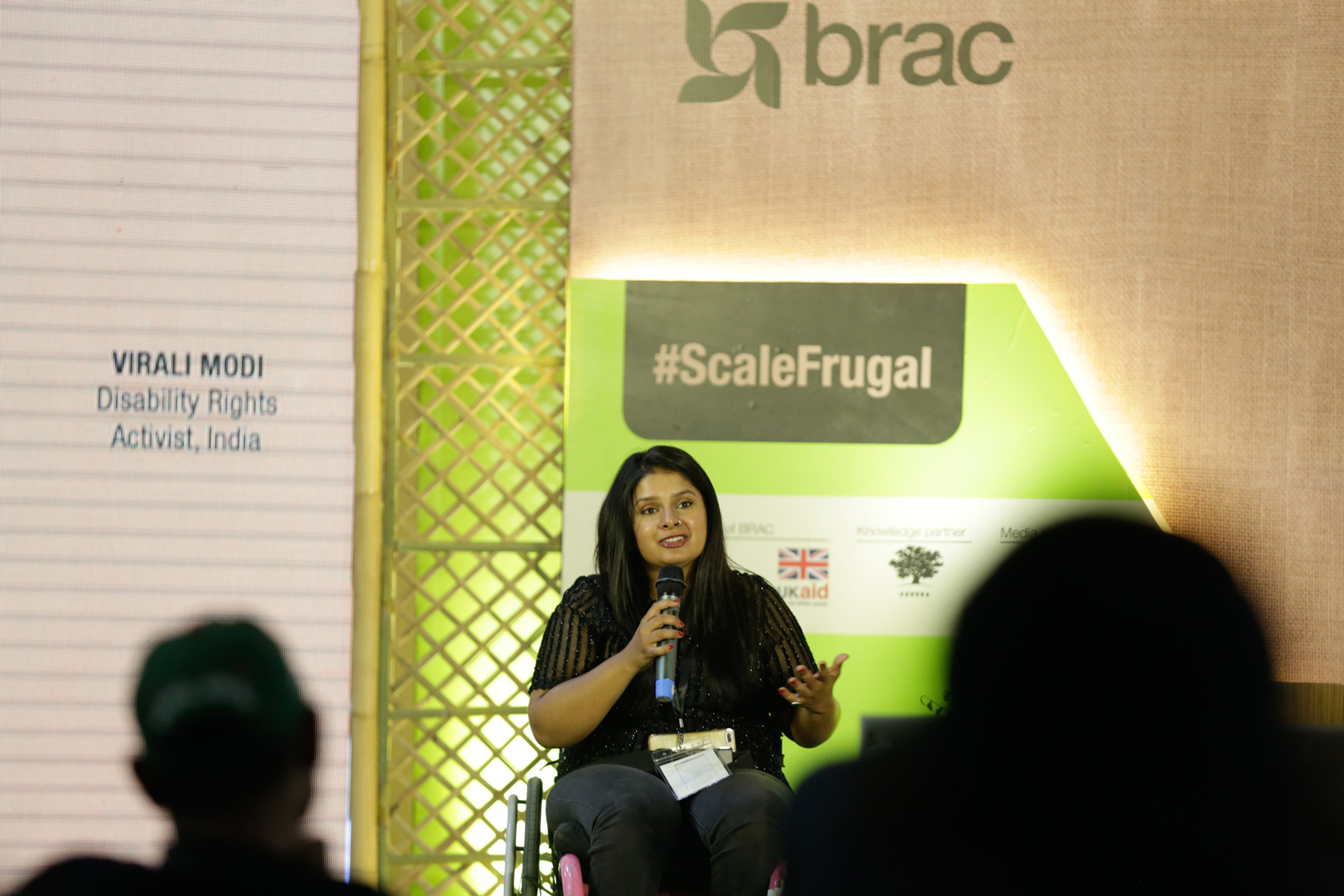
Technology in her case drove advocacy and action, instead of slacktivism that social media users today often fall prey to.
For Sohara Mehrose Shachi, a research associate for climate change, writing has been one of the most important ways of making impact. From food crisis in the remote regions of Chittagong Hill Tracts to environment degradation in the Rohingya camps, Sohara took it upon herself to tell stories no one was writing about, even though it was not part of her day job, “The important question to ask is what appeals to you, and then doing your part.”
Speakers reiterated that the focus of social media should be on content that connects people and make them feel part of a larger community. It has to be done with honesty and compassion.
Young people’s increased use of the internet is good news, because in the future work will depend heavily on technology.
For Ayman Sadiq, founder of the 10-minute School, the idea was to create ambassadors for students, especially those who could not afford coaching classes. The virtual school model works because it broke barriers, both economic and geographic, and now connects 1.4 million students making it the largest online community of students.
Bridging the worlds of education and employment
How do we ensure that the seat in the table is not tokenism? What do we do when young people actually have a seat on the table?
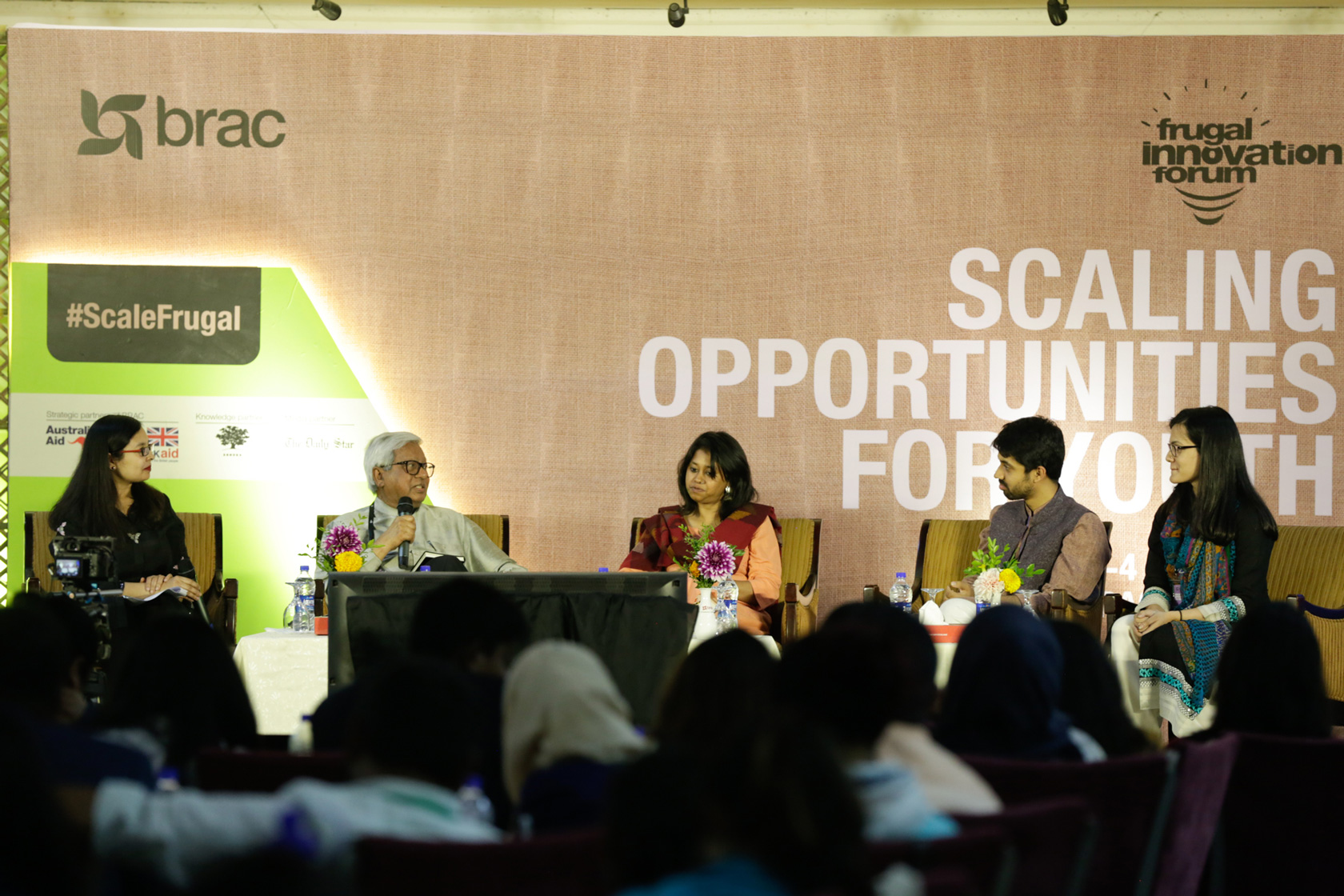
Empowering through education and skills, keeping in mind that the youth is not a homogeneous group can prevent setting them up for failure.
Akanksha in Western India is a network of public-private partnership schools that sees schools as ‘multipliers’ – becoming hubs of innovation while creating partnerships between students, parents, schools, and community to ensure children are in a supportive and nurturing environment at school and at home.
One of the topics visited in many of the sessions was how education systems contribute to the employability of young people and what can be done to improve their transition from school to work.
A key idea shared by many practitioners present in the forum was that far from being fearful of an uncertain future, the majority of young people are optimistic about the impact of technology and innovation. As technological advances disrupt labour markets, eradicating many jobs and creating new and different roles, initiatives like Google’s Kormo in Bangladesh or Harambee of South Africa is connecting job seekers with employers while equipping them with 21st century skills.
Will 2019 be the year that young people will be encouraged to claim spaces and tread uncharted waters? The Bangladeshi government passed the National Youth Policy last year, and there are many action plans and projects being drawn up and at various phases of implementation, while new budgets are being put in place. Changemakers everywhere are finding new ways to connect and innovate, pushing governments to rethink old ways. It is definitely a year to be optimistic for the futures of young people in the Global South.
Sameeha Suraiya is a content strategist at BRAC Communications.
